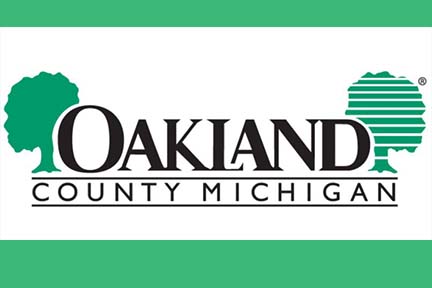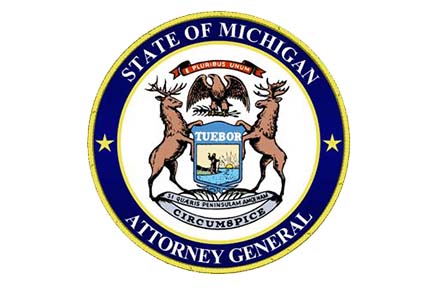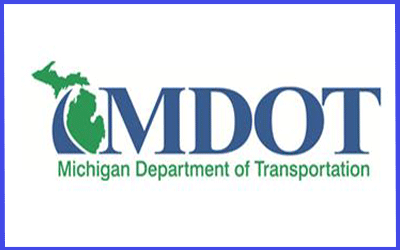
by orionontv | Dec 30, 2024 | Regional News

Governor Whitmer Signs Bills Expanding Affordable Housing Options Across the State, Lowering Costs and Putting Money Back in Michiganders’ Pockets
Additional legislation helps create jobs and grow the economy, makes changes to the courts
LANSING, Mich. – Today, Governor Gretchen Whitmer signed eight commonsense bills that will expand affordable housing options for Michiganders by reducing the barriers renters must overcome while looking for a roof over their heads. Additional legislation signed protects Michiganders testifying in the courtroom, combats human trafficking, and supports economic development in our state. Including today’s legislation, Governor Whitmer has signed a record 1,431 bipartisan bills into law since taking office.
“I am committed to growing access to affordable housing so every Michigander can raise their family in a vibrant community,” said Governor Whitmer. “That’s why I am proud to sign these commonsense bills that expand affordable housing options and protect Michiganders from housing discrimination. I’m also proud to sign additional bipartisan legislation that will protect survivors in the courtroom and help grow Michigan’s data processing industry. I’ll work with anyone to make sure Michigan is the first place folks think of to live, work, and raise their families.”
Senate Bills 205, 206, and 207, sponsored by state Senators Mary Cavanagh (D-Redford Township), Rosemary Bayer (D-West Bloomfield), and Jeff Irwin (D-Ann Arbor), expand affordable housing options in Michigan by preventing qualifying landlords from denying a tenant housing based on their source of income. The bills also combat homelessness in Michigan by reducing the barriers folks have to overcome when finding housing in our state. These changes will help potentially 34,290 families afford a roof over their heads and will create more affordable housing options for Michiganders across the state, building on the Whitmer-Gilchrist administration’s commitment to ensuring anyone can “make it in Michigan.”
Senate Bills 515, 516, and 517, sponsored by state Senators Rosemary Bayer (D-West Bloomfield), Sue Shink (D-Northfield Township), and Stepanie Chang (D-Detroit), will combat human trafficking in Michigan and help bring justice for survivors of sexual assault by updating the process to gather and use evidence in prosecuting perpetrators of these crimes. Specifically, the bills ease the rules for a victim’s testimony and allow a perpetrator’s prior criminal activities as pieces of evidence. Not only will these bills protect survivors of these horrific crimes, but they will also address human trafficking in our state, building a more secure Michigan where everyone can feel safe from sexual violence.
Senate Bill 248, sponsored by state Senator Dan Lauwers (R-Brockway), supports a wider range of individuals when testifying in the courtroom by expanding the age limit to have a courtroom support dog from 16 years old to 18 years old. This bill joins Michigan with 20 other states that already have similar policy in effect, supporting young individuals in their pursuit of justice.
Senate Bill 237, sponsored by state Senator Kevin Hertel (D-St. Clair Shores), supports Michigan business owners and helps to expand data center production in Michigan by extending a tax exemption for individuals and companies investing in data center equipment. This bill provides incentives for data centers to locate in Michigan, creating jobs and supporting local economies, bolstering the Whitmer-Gilchrist administration’s commitment to making sure anyone can “make it in Michigan.”
|

by orionontv | Dec 27, 2024 | Regional News
Oakland County Honored for Sustainability with Two Prestigious Green Leadership and Community Awards
Post Date:12/27/2024 11:22 AM
- The Local Market Leadership Award from the US Green Building Council Detroit Region recognizes exemplary use of green building and sustainability practices that improve quality of life in the Metro Detroit area.
- The USGBC-WM’s Certified Green Community Award acknowledges projects that make extraordinary contributions to creating energy-efficient, environmentally conscious communities that drive local development.
- The county’s LEED for Cities Gold certification exemplifies its commitment to adopting environmentally sound practices that prioritize accessible green spaces, energy efficiency, water conservation, and reduced carbon emissions.
 Pontiac, Mich. – Oakland County has been recognized for its commitment to sustainability, earning two distinguished honors: the 2024 Local Market Leadership Award from the U.S. Green Building Council (USGBC) Detroit Region and the Certified Green Community Award from the U.S. Green Building Council of West Michigan (USGBC-WM). Both awards celebrate Oakland County’s LEED for Cities Gold certification, highlighting its innovative approach to fostering healthier, more resilient communities through sustainable practices.
Pontiac, Mich. – Oakland County has been recognized for its commitment to sustainability, earning two distinguished honors: the 2024 Local Market Leadership Award from the U.S. Green Building Council (USGBC) Detroit Region and the Certified Green Community Award from the U.S. Green Building Council of West Michigan (USGBC-WM). Both awards celebrate Oakland County’s LEED for Cities Gold certification, highlighting its innovative approach to fostering healthier, more resilient communities through sustainable practices.
“Our commitment to sustainability in Oakland County is about creating a healthier, more vibrant future for everyone,” County Executive Dave Coulter said. “These awards reflect the hard work of our staff, communities and partners, showing that together we can lead the way in building more resilient, healthy and environmentally friendly communities.”
The USGBC Detroit Region presented Oakland County with the Local Market Leadership Award during the Building Transformation Forum on Dec. 4 in Detroit. The award recognizes exemplary use of green building and sustainability practices that improve quality of life in the Metro Detroit area.
“USGBC’s Local Market Leadership Awards spotlight commitment and innovation in green building,” said Lana Crouse, director of the USGBC Detroit Region. “Oakland County’s achievement of the 2024 LEED for Cities Gold certification demonstrates how sustainable practices directly enhance quality of life for residents, visitors and businesses.”
Oakland County was further honored for their LEED for Cities certification by the USGBC-WM at the 2024 Annual Party & Leadership Awards Ceremony on Dec. 5 in Grand Rapids. The Certified Green Community Award acknowledges projects that make extraordinary contributions to creating energy-efficient, environmentally conscious communities that drive local development.
“These recognitions underscore Oakland County’s efforts to achieve measurable environmental progress and reflect County Executive Dave Coulter’s vision of fostering sustainable, thriving communities,” said Julie Lyons Bricker, Oakland County’s sustainability project manager.
The county’s LEED for Cities Gold certification exemplifies its commitment to adopting environmentally sound practices that prioritize energy efficiency, water conservation and reduced carbon emissions.
The county scored particularly well in the topics of abundant green space, natural resource conservation and restoration, stormwater management, smart water systems and several quality-of-life performance measures. LEED stands for Leadership in Energy and Environmental Design and has recently been expanded to include certifying cities and communities for their sustainability efforts.
Both awards reinforce Oakland County’s leadership role in advancing sustainability statewide. As part of its vision, the county aims to inspire other municipalities to adopt innovative strategies that address climate change and support long-term environmental stewardship.

by orionontv | Dec 27, 2024 | Regional News
|
FOR IMMEDIATE RELEASE:
December 27, 2024
|
|
AG Nessel Provides Guidance on How to File a Consumer Complaint
“Each year, our Consumer Protection Team helps Michigan consumers by mediating complaints that fall within our jurisdiction,” Nessel said. “I encourage anyone who believes they have been a victim of fraud or deceptive business practices to reach out and file a complaint.”
When the Department receives an online complaint, consumers will be taken to a confirmation screen with their assigned Attorney General file number. The Consumer Protection Team receives thousands of consumer complaints, so it may take a few weeks until a complaint is fully processed.
Before filing a complaint, consumers should keep the following in mind:
- Complaints and supporting materials become public records when they are submitted to the Attorney General’s office. This means that under the Michigan Freedom of Information Act, some of your materials may be disclosed to anyone who asks for them.
- Your complaint may be sent to the business you are complaining about, and it may be sent to other governmental agencies for their review.
- Some complaints may become the subject of civil or criminal cases and may be disclosed as part of a court proceeding.
- Any information that you give to us will not be sold, rented, or leased.
- We do not return documents, so make copies of everything that you submit and do NOT submit any original documents.
- Do not send sensitive personal information, like your social security number or credit card information, unless it is necessary for the investigation of your complaint.
- If you believe that you must submit sensitive information, then please send the complaint and any attachments by mail and include your name or Attorney General file number if you have one. Never send sensitive personal information in an email.
- Not all consumer complaints are handled by the Attorney General. By law, many other state and federal agencies assist consumers. Consult the Complaint Directory to find the agency or division that can best help you.
To file a complaint with the Attorney General, or get additional information, contact:
|
|

by orionontv | Dec 27, 2024 | Regional News
|
FOR IMMEDIATE RELEASE
December 26, 2024
Contact: Ron Leix, Treasury, 517-335-2167
Scholarship awardee Rebecca Yager of Saginaw encourages donations to transform lives of foster youth
LANSING — As 2024 draws to a close, the Fostering Futures Scholarship Trust Fund urges generous Michiganders to act quickly — there are only a few days left to make a year-end donation that directly supports foster youth in pursuing higher education while also making contributors eligible for state and federal tax deductions.
This year, Fostering Futures highlights the success of Rebecca Yager, a scholarship recipient and student at Delta College in Saginaw County. The Bay City Central High School graduate’s inspiring story is a testament to the power of education in shaping futures.
“Being awarded this scholarship has been life-changing,” Yager said. “It’s about more than financial support — it’s about knowing someone believes in your potential. I encourage everyone to donate, not just for the tax break but to give foster youth the opportunity to succeed.”
The scholarship fund, managed by the Michigan Department of Treasury, has supported hundreds of students like Yager, covering expenses such as tuition, housing and textbooks.
At any given time, there are approximately 9,500 children in foster care in Michigan who upon reaching adulthood often lack adequate resources to pursue their educational dreams. Former foster youth face significant barriers to education, with only 3% nationwide achieving a college degree. The Fostering Futures Scholarship Trust Fund is committed to changing that statistic.
“Your donation does more than provide financial aid — it offers foster youth a chance to dream big and achieve their goals,” said Diane Brewer, executive director of the Michigan Education Trust (MET). “Every contribution helps change lives and builds a brighter future for these deserving young individuals.”
Since its inception in 2012, the program has awarded more than $1.4 million in scholarships, funded entirely through community donations, sponsorships and events.
Contributions made by Dec. 31 will not only be eligible for state and federal tax breaks for the current tax year but also will have a direct impact in 2025 by ensuring that more of Michigan’s foster youth have access to the education they deserve. Fostering Futures scholarships now include attendance at any Michigan degree-granting college or university.
To apply or learn more about the Fostering Futures Scholarship, go to http://www.FosteringFutures-mi.com/ or call toll-free at 888-4-GRANTS (888-447-2687).
|

by orionontv | Dec 26, 2024 | Transportation
MDOT secures federal grant for wildlife crossing hotspots
SAGINAW, Mich. – In a win for motorists and wildlife alike, the Michigan Department of Transportation (MDOT) has secured a grant from the U.S. Department of Transportation (USDOT) to fund a wildlife crossing analysis. In September, MDOT announced their grant submission in partnership with the Michigan Department of Natural Resources (MDNR), aimed at identifying the most problematic wildlife crossings posing a risk for motorist safety on state trunklines. MDOT has been awarded $467,376 to fund the analysis, further streamlining efforts to improve motorist safety by reducing wildlife vehicle collisions (WVCs).
The Federal Highway Administration (FHWA) announced $135 million in grant awards for 16 states for fiscal year 2024-2025 as part of the USDOT’s Wildlife Crossings Pilot Program (WCPP). In 2023, the USDOT awarded $110 million in funding for 17 states, and a total of 19 wildlife crossings. Awards included $24.4 million for Wyoming DOT to complete several crossings supporting migratory patterns for mule deer, pronghorn and other species.
Michigan typically ranks fourth highest in the nation for deer/vehicle crashes, with an average of 55,000 deer/vehicle crashes per year, resulting in $130 million in damages. Michigan also reports crashes with moose, elk, bear and wild turkeys. While the number of crashes with other large species is not as high, the risk and damage are detrimental and increase the risk for some species of greatest concern (SGCN). Additional at-risk specifies identified in MDOT’s grant application include Blanding’s turtles, eastern massasauga rattlesnakes and pine marten.
“We’re pleased the state has secured funding to undertake this innovative work in Michigan,” said Steve Chadwick, senior Great Lakes wetland advisor for the MDNR. “This grant has the potential to benefit at-risk species by helping them reach critical habitat, and to protect more common species as we seek to make roads safer for Michigan drivers.”
MDOT’s Bay Region has spent years tracking deer carcasses and traffic crash reports (UD-10s) submitted by law enforcement to identify the locations and frequency of WVCs, with an end-goal to reduce crashes, improve motorist safety and protect at-risk species. Moving forward MDOT, MDNR and other state departments will turn over their existing WVC data to a consultant team to begin the official wildlife hotspot analysis using the federal grant and a state match of $116,844 to fund the study. The hotspot analysis will identify the top 20 locations statewide responsible for repetitive WVCs, allowing MDOT to work toward the ultimate goal of providing WVC mitigation and protecting all Michiganders, including the wildlife variety.
“We’re going to look at locations identified by the analysis and first determine if there is existing infrastructure in place that can be retrofitted to accommodate wildlife passage,” said MDOT Bay Region Resource Specialist Amanda Novak. “If there is an existing bridge or culvert that can include space for wildlife, mitigation measures similar to those in other states can be added and can help us increase the number of wildlife crossings without a huge financial investment. Ultimately, we stand to gain by also incorporating what we learn into future design standards, so we’re active in our wildlife mitigation efforts, starting in the design phase of a road project.”
Novak spoke about her experience researching wildlife crossings and collecting data during a September edition of the Talking Michigan Transportation podcast.
MDOT expects to issue a request for proposals this spring, beginning the process of hiring the team that will complete the final compilation of WVCs.
###
Crash Not Accident
Note to reporters: Crashes are no accident, they are preventable. Please use “crash” instead of “accident” when reporting. Learn more at www.Michigan.gov/CrashNotAccident.

Bull moose struck by vehicle in the Upper Peninsula of Michigan.
Credit: MDNR

Gravid Blanding’s turtle struck by a vehicle in southern Michigan.
Credit: Eric McCluskey

Eastern massasauga rattlesnake struck by a vehicle along a state highway in Michigan.
Credit: Jennifer Moore












